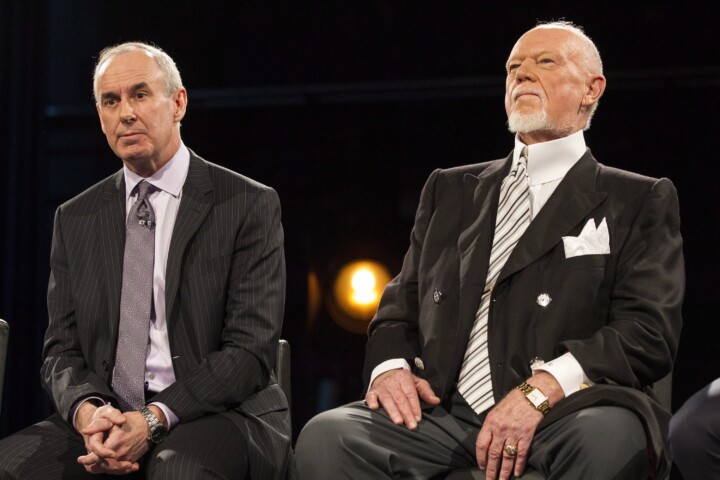COVID-19 has exposed the world to a deadly pandemic that has killed millions, crippled health care and stifled economies. Yet in every disaster there is a learning opportunity and we need to take advantage of the lessons learned on how to ensure a better future.
The Liberals have again won government in a costly election that achieved little change. It is not a mandate for expensive, inefficient policies, but rather should be seen as a wake-up call for changing the paradigm of politics as usual. During the campaign both the Liberals and Conservatives promised to invigorate innovation by funding a DARPA-like program.
DARPA is the Defense Advanced Research Projects Agency in the United States that is tasked with developing emerging technologies initially planned for use by the military, but with major spin-offs for civilian use. It was started in 1958 by President Dwight Eisenhower as a response to falling behind Russia in the space race.
DARPA funds important research in collaboration with industry, universities and government agencies. This collaboration was critical to the rapid development of mRNA vaccines as well as the antibody therapy given to former President Donald Trump to counter viral infection.
The Economist has called DARPA the “agency that shaped the modern world.” Its contributions have helped with the development of GPS, weather satellites, drones, stealth technology, the internet, and computer technology. A number of other countries have now tried to emulate DARPA’s success.
A Liberal campaign promise was to establish CARPA to create “a public-private bridge for research that helps develop and maintain Canadian-led technology and capabilities in high impact areas.” The agency is to be established with an initial endowment of two billion dollars.
There will be many election promises not kept. This should not be one of them. Creating CARPA is a bold idea that needs to be fulfilled and rolled out in a novel way. There should be lessons from previous failures.
The Canada Infrastructure Bank was a $35 billion project founded in 2017 to promote public-private investment in much-needed infrastructure. Four years later it has been slow to invest in projects, failed to find the expected private partners and is challenged by the limited scope of its projects.
CARPA needs to truly be bold and innovative without politicization of how the funds are distributed, and with nimble and visionary allocation.
Unlike DARPA, Canada does not have the need for the development of military applications. The focus of CARPA should be on technology and innovation that will drive improvements in health, environmental safety, and business development that will lead to healthier Canadians and more well-paying jobs. Whatever one thinks of the single payer model of health care, it’s one of the few industries in Canada that has the scale to bring these new breakthrough technologies to life.
We need to get away from expensive health care with a focus on prevention and early disease recognition and management. The hybrid of virtual and in-person care will persist long after COVID-19.
An area of focus can be the expanded creation of data from wearable devices that assess physiology and function, informing physicians and nurses and also providing important patient feedback. Business and Venture Capital partnerships will be readily available. The Apple 6 watch already has the ability to record a high-quality single lead electrocardiogram and your oxygen saturation.
The ability for the watch to track blood sugar measurement will hopefully be added soon. One of DARPA’s current projects is the implantation of a tissue like gel under the skin, engineered to continuously monitor your blood and report on problems.
Medicine is also being transformed by the use of artificial intelligence to evaluate big data pools to better manage disease and improve outcomes. Canada can be a leader in the application of AI to healthcare and business. Potential public-private partnerships will be further enhanced by the $100 million gift to create the Schwartz Reisman Institute for Technology and Society affiliated with the University of Toronto. There will be 750,000 square feet of new space built which will also house the existing world class Vector Institute for Artificial Intelligence.
CARPA needs to fund seed grants and mentor outcomes in a robust, supportive model similar to DARPA. Israel can again teach us lessons on how the strong support of technology-based universities, research incubators, and strong VC partnerships lead to world class discovery. It is actually important and to be expected that a number of projects fail, because it will show the agency is being ambitious. However as Joan Baez sang Bob Dylan’s words in Love Minus Zero “There’s no success like failure, but failure is no success at all.”
Canada has the talent, infrastructure, excellent universities and collaborators to succeed on a large scale. We need to seize the opportunity by CARPA Diem.
My father, tempered by the Holocaust, proudly believed in doing things economically, quickly and effectively. His life long motto should also instruct how CARPA will function: the difficult I can do by tomorrow; the impossible just takes a little longer.
Recommended for You

Michael Geist: Children accessing porn is a problem, but government-approved age verification technologies are not the answer

Daniel Zekveld: Age verification for pornography is not government overreach

Paul W. Bennett: With AI taking over classrooms, it’s time to go old school again

Cam Linke: Closing Canada’s AI skills gap is key to driving our economic future



